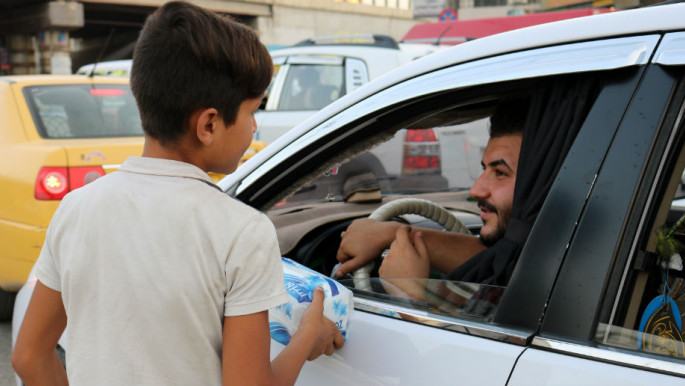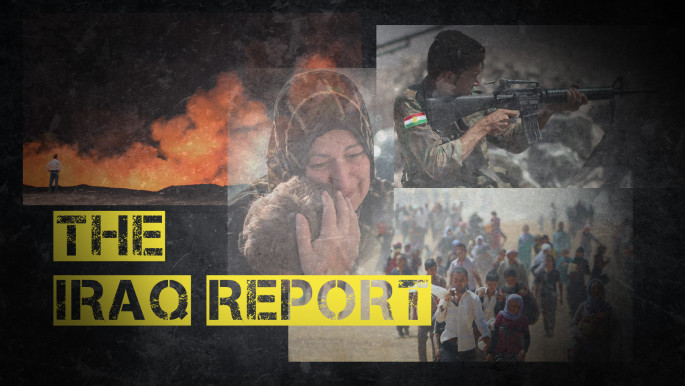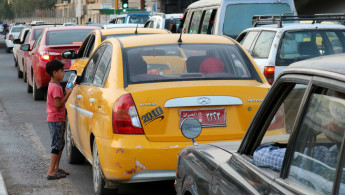Begging to survive: Mosul's vulnerable street children are being exploited
A year on from Iraqi forces announcing the "liberation" of Mosul from the Islamic State group, the scars of the bloody nine-month offensive to oust the militants are still visible in the city.
After losing parents either in the battle or during IS's brutal three year occupation of Mosul, dozens of children have turned to street peddling or begging to survive.
"I sell tissues... I go out every day from seven in the morning to 10 at night," 12-year-old Salem said, wiping sweat from his face as the sun beats down on the Nabi Younis junction in Eastern Mosul.
His mother's only child, Salem hopes to scratch out a living for the two of them. His father was killed by militants before the push to retake Mosul began, leaving the family without a breadwinner.
Read also: The scars of war: Mosul's children haunted a year after Islamic State was routed
According to the group Orphan's Joy in Nineveh, encompassing Mosul and the wider province, there is no official data on the number of children who have lost their parents.
But the group's research has pointed to the "presence of 6,200 orphans" in Nineveh, with around 3,283 children's parents killed in the latest events in Mosul, the organisation's head, Kedar Mohammed, said.
Mosul's two orphanages, one for boys and one for girls, have seen large numbers of children aged six to 18 seeking shelter, according to administrators.
 |
Mosul's two orphanages, one for boys and one for girls, have seen large numbers of children aged six to 18 seeking shelter |  |
Each day, dozens of children spread out across Mosul's intersections and traffic signals to ask for money.
Thin and dressed in tattered clothes, they trail pedestrians and extend hands to passing cars. Some wash windows or sell tissues and water.
"My family was killed and our house was destroyed in the bombardment of the Old City," 10-year-old Ali Bunyan said, unable to hold back his tears.
Fighting destroyed nearly 90 percent of western Mosul's Old City, which now lies in ruins and is devoid of any major reconstruction projects.
"I have no relatives now. I have to beg to support myself... I've been unable to find work because I'm young," said Bunyan, who like many of the other children refused to speak about his current place of residence.
Read also: Iraqis struggle with social anxiety in Mosul after Islamic State rule
Nineveh provincial council member Khalaf al-Hadidi said that "until now, there is no real project or study either from the federal or local government to deal with this phenomenon".
Finding a solution was becoming increasingly important, he said, "especially as the street children are exposed to various kinds of exploitation".
 |
|
| Gangs are turning children, who are forced to beg, into organised groups to profit from their poverty [AFP] |
Residents say gangs are turning the street children into organised groups, or forcing them to pay a fee to beg in public places.
"One day, as I was waiting for my appointment at a medical clinic, I watched an employee at the reception kick out a small girl that was begging," said 35-year-old Mosul resident Abu Hamid.
"As she left, she told me she had been kicked out for refusing to increase the weekly agreed-upon fee," he said.
According to social researcher Fatima Khalaf, "conditions in Mosul have left children vulnerable to numerous violations in the street".
"If they are left out in the streets... they will become useless members of society, and perhaps some of them will become criminals," she said.
Ghaleb Ahmed, a 20-year-old Mosul municipal employee, thinks it would be better to target the top of the "gangs and systems that manage the begging and exploit the children".
"This phenomenon counts as a criminal project and terrorism, and it creates a corrupt and psychologically damaged generation," he said.
 |
|
| Read also: The Iraq Report |
Last December, the Iraqi government claimed victory over IS in Iraq, just months after Iraqi Prime Minister Haider al-Abadi declared victory against the group in Mosul.
The July 2017 defeat in Mosul came eight months after an alliance of Iraqi armed forces, Shia militias and Kurdish fighters launched an offensive to retake the city. It was considered one of the biggest defeats for the Islamic State group, but the cost of this "liberation" has been immense.
Monitoring group Airwars estimated that between February and June last year, as many as 5,805 Iraqi civilians were killed in Iraqi and coalition attacks. But many believe the actual number is likely much higher, with rights group Amnesty International saying at the time that the "true death toll of the battle may never be known".
In addition to the deaths, nearly a million people fled their homes during the military operations and the fighting destroyed entire districts of the city, with the scale of destruction unprecedented in Iraq's most recent conflict. The UN estimated that the cost of repairing basic infrastructure is set to top more than $1 billion, with rebuilding likely to take several years.



